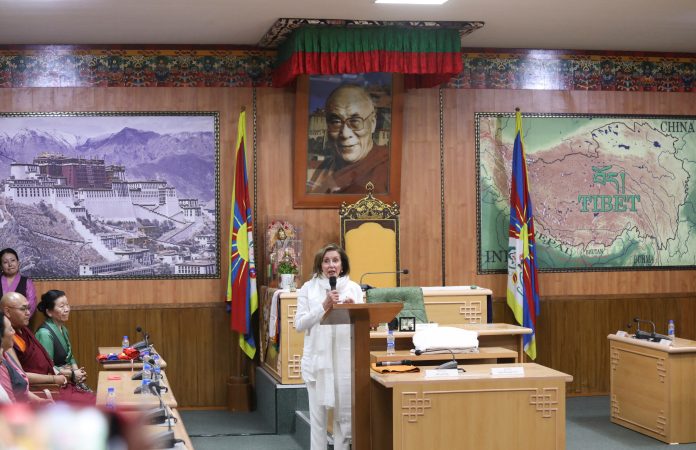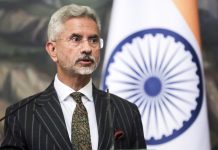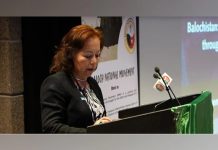
A group of U.S. lawmakers who met the Dalai Lama in India on Wednesday said they would not allow China to influence the choice of his successor, comments expected to anger Beijing, which calls the exiled Tibetan spiritual leader a separatist.
The remarks come as Washington and Beijing seek to steady rocky ties while India pushes China to secure lasting peace on their disputed Himalayan frontier, four years after a military clash strained ties.
The lawmakers also signalled that Washington would pressure Beijing to hold talks with Tibetan leaders, stalled since 2010, to resolve the Tibet issue, with a bill they said President Joe Biden would sign soon.
Although Washington recognises Tibet as a part of China, the bill appears to question that position and any change would be a major shock to Beijing, analysts said.
The bipartisan group of seven, led by Michael McCaul, a Republican representative from Texas, who also chairs the House foreign affairs committee, met the Nobel peace laureate at his monastery in the northern Indian town of Dharamsala.
“It is still my hope that one day the Dalai Lama and his people will return to Tibet in peace,” McCaul told a public reception after the meeting.
Beijing has even attempted to insert itself into choosing the successor of the Dalai Lama, he said, but added, “We will not let that happen.”
The Dalai Lama fled to India in 1959 after a failed uprising against Chinese rule in Tibet. The 88-year-old, who has battled health problems for years, is set to fly to the United States this week for medical treatment.
The question of the Dalai Lama’s successor has been a thorny issue, which analysts say highlights the power and influence of the role, fuelling Beijing’s tussle to control it.
Tibetan tradition holds that the Dalai Lama is reincarnated after his death, and the current leader has said his successor may be found in India.
Beijing has said the tradition must continue but its officially atheist Communist leaders have the right to approve the successor, as a legacy inherited from China’s emperors.
TIBETANS HAIL BREAKTHROUGH
The U.S. group, which includes Democratic former House Speaker Nancy Pelosi, arrived on Tuesday for a two-day visit.
Pelosi said Congress approval of the legislation, titled “Promoting a Resolution to the Tibet-China Dispute Act”, or the Resolve Tibet Act, sent a message to China that Washington was clear in its thinking on the issue of Tibet.
“This bill says to the Chinese government: things have changed now, get ready for that,” she said to cheers from hundreds of Tibetans at Wednesday’s event.
Photographs on the Dalai Lama’s website showed him holding a framed copy of the bill as the lawmakers stood alongside.
Beijing, which calls the Dalai Lama a dangerous “splittist” or separatist, has said it was seriously concerned about the bill and the lawmakers’ visit, urging them not to contact what it calls the “Dalai clique” and Biden not to sign the bill.
The Indian foreign ministry offered no immediate comment on the lawmakers’ visit.
Ties between the Asian rivals have been strained over their long mountainous border since army clashes in 2020 killed 20 Indian and four Chinese troops.
At the same time, concerns about China’s growing might, among others, have nudged New Delhi and Washington closer in the last two decades.
While Chinese officials chafe at any interactions of the Dalai Lama with officials of other countries, Biden has not met the Tibetan leader since taking office in 2021 and it is not clear if his treatment plans will allow time for engagements.
“Presidential assent for the bill would be far more concerning for China than whether Biden or any other leader meets the Dalai Lama,” said Tibet specialist Robert Barnett of London’s School of Oriental and African Studies (SOAS).
Congressional approval of the bill was a “significant breakthrough”, Penpa Tsering, the political leader of the exiled Tibetan government, told Reuters in an interview.
He said he believed it would put pressure on Beijing to negotiate and that it could serve as a precedent for other nations to adopt similar policies to Washington.
“This will give us a tool to work with other governments,” he said in his office in Dharamsala.
But the Dalai Lama had always sought “autonomy or a middle way, not independence” for Tibet, he added.































